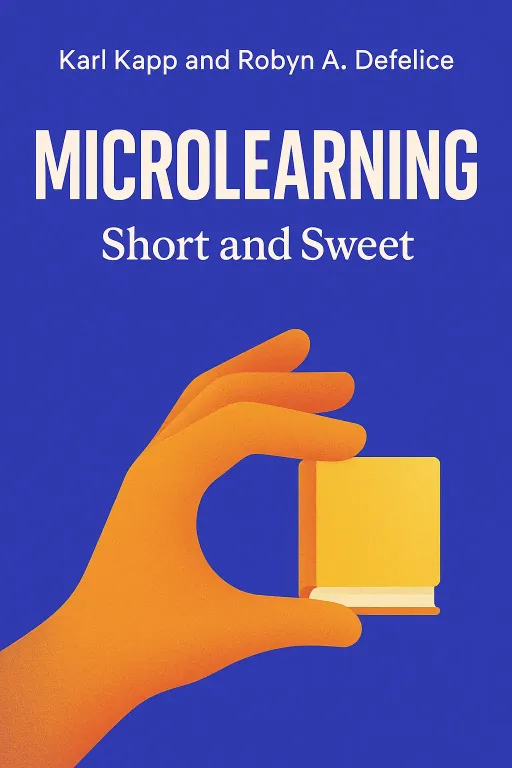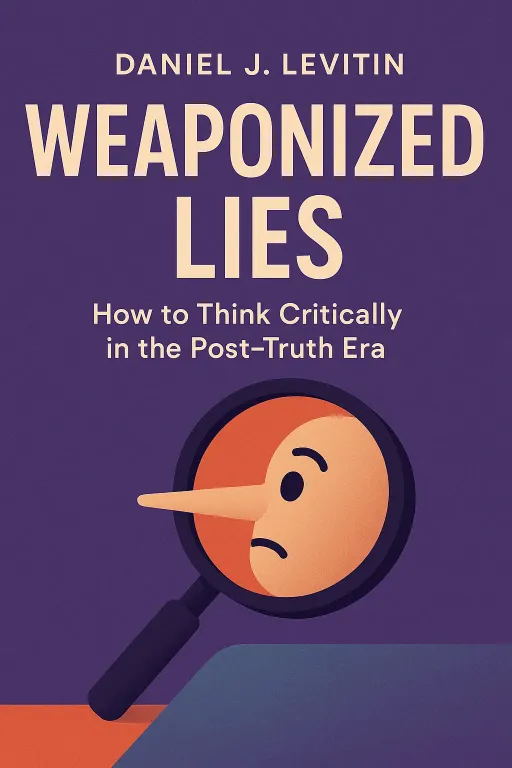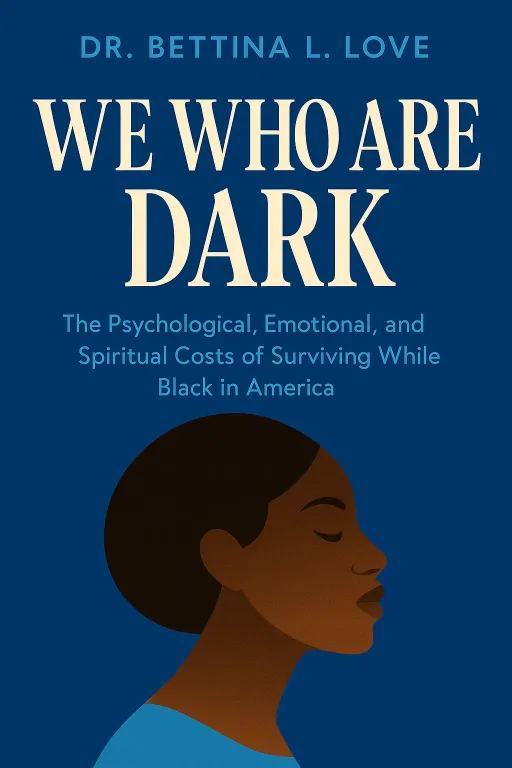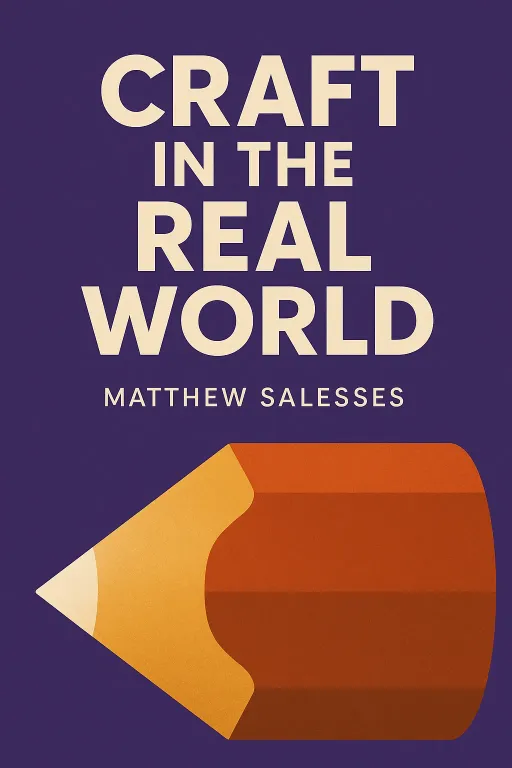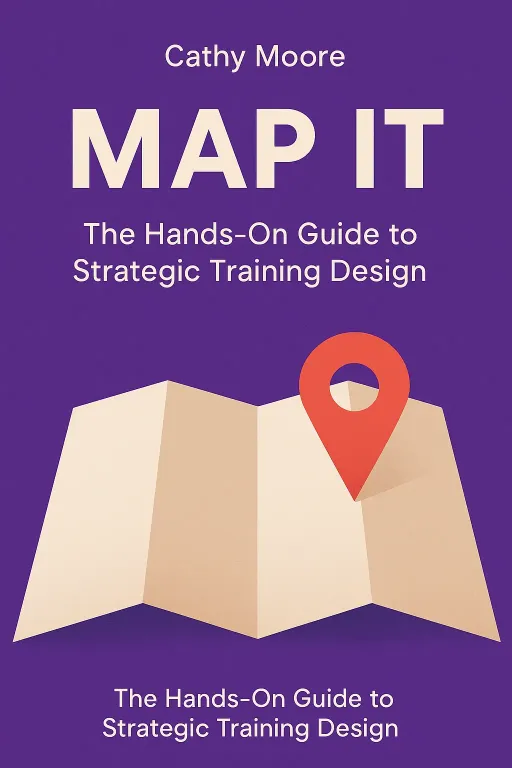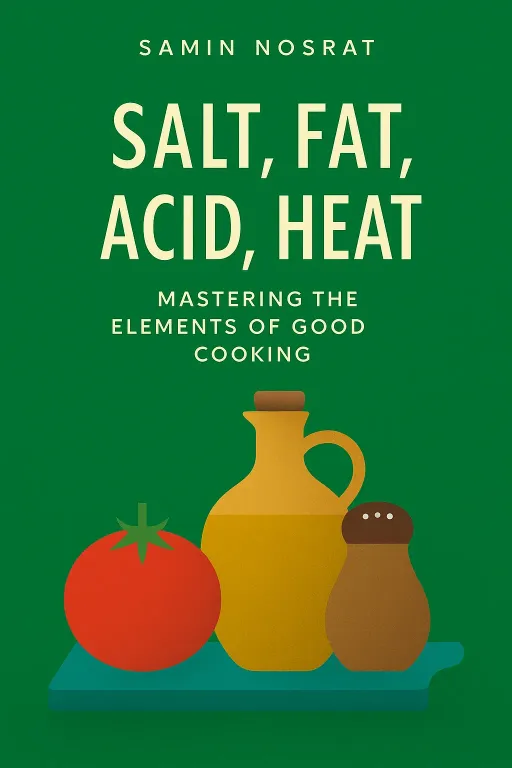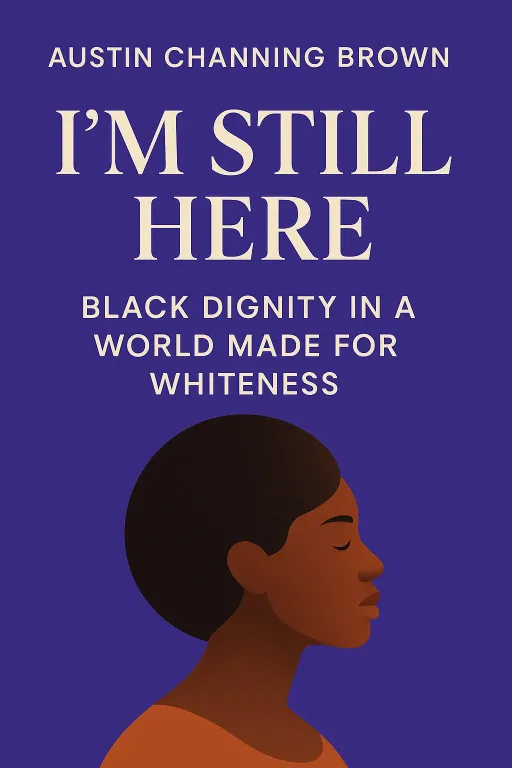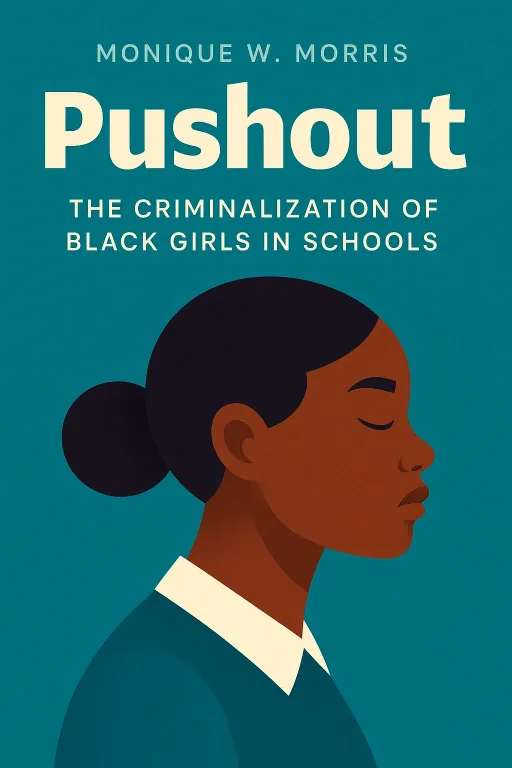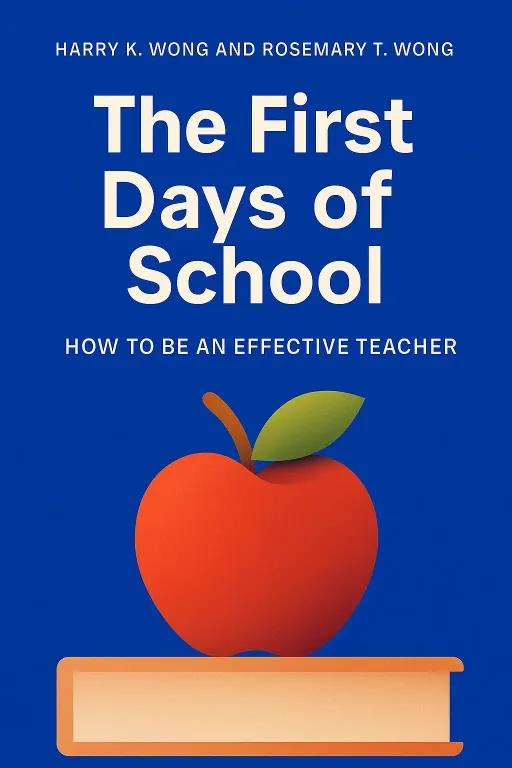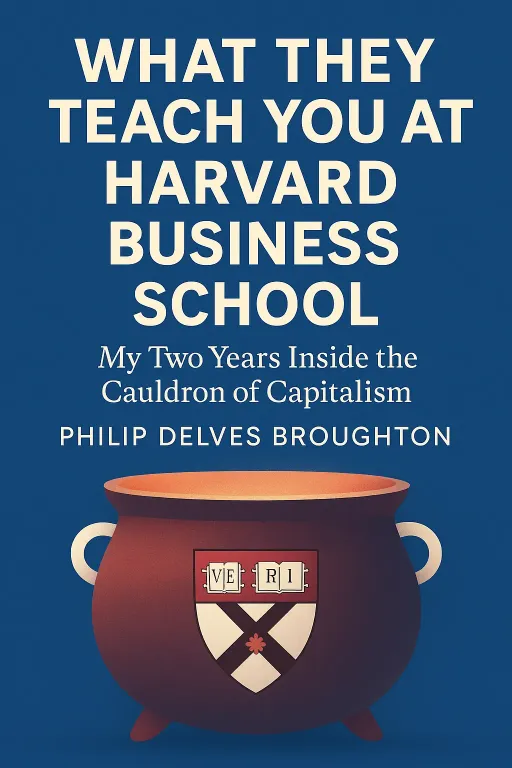
Harvard's Unhappy Factory
11 minMy Two Years Inside the Cauldron of Capitalism
Golden Hook & Introduction
SECTION
Laura: Everyone assumes an MBA from Harvard is a golden ticket to a perfect life. But what if the school is, in the words of one of its own graduates, a "factory for unhappy people"? Sophia: Whoa, hold on. A factory for unhappy people? That’s the opposite of the brochure, isn't it? That sounds like a story with a serious twist. I’m hooked. Laura: It’s the shocking inside story we’re unpacking today, from Philip Delves Broughton’s incredible memoir, What They Teach You at Harvard Business School. And what makes his account so compelling is his background. Broughton wasn't a finance bro or a consultant. He was an accomplished journalist, a bureau chief for London's Daily Telegraph. He went to HBS in his thirties to escape the grind of journalism, not to write a tell-all book. Sophia: Oh, I love that. So he's an outsider on the inside. He has a trained eye for observing culture and calling out nonsense, but he's also a student, going through the same intense experience as everyone else. That gives him a unique kind of credibility. Laura: Exactly. He’s not just critiquing from afar; he’s in the "cauldron of capitalism," as the subtitle says, feeling the heat himself. And that heat gets turned up from the very first day. Sophia: So where does this transformation into a potentially 'unhappy person' begin? It can't start on day one, can it? I imagine you walk in, get your books, and head to a lecture on, I don't know, supply and demand. Laura: You would think so, but no. The process of forging an HBS graduate, this elite identity, is far more deliberate and frankly, a lot weirder than that. It starts before you even touch a finance textbook.
The HBS Transformation Machine
SECTION
Laura: The transformation begins with a kind of indoctrination. The book opens with the author, a seasoned foreign correspondent, feeling completely out of his depth in what they call "Math Camp." He's surrounded by 20-somethings who are already fluent in the language of business. But the real mind-bending starts with a mandatory game called "Crimson Greetings." Sophia: Wait, Crimson Greetings? Please tell me this is not some corporate icebreaker where you have to share your spirit animal. Laura: It's so much more absurd. The entire class of 900 students is herded into a gymnasium and divided into teams. Their mission? To build and run a greeting card business from scratch in a few hours. They have to buy paper, design cards, manage inventory, set prices, and sell them. Sophia: Okay, I’m picturing a chaotic scene from a reality TV show. A bunch of hyper-competitive, sleep-deprived overachievers fighting over glitter and construction paper. Laura: That's pretty much it! Broughton’s team is a perfect microcosm of HBS. There's Linda, an aggressive New Yorker who immediately takes charge. There's Gunther, an Austrian consultant who creates these ridiculously complex charts to track their greeting card production, and Raphael and Ernesto, two Argentines who just want to get things done. Broughton, the writer, feels useless until he comes up with the brilliant inscription for a Halloween card: "Boo!" Sophia: (laughing) "Boo!" That’s his big contribution? After a decade in journalism, his killer business insight is the word "Boo." That’s both hilarious and a little heartbreaking. Laura: Exactly! And that's the point. The exercise isn't really about learning how to run a greeting card business. It’s about breaking down their old identities and forcing them to operate within the HBS system. It’s about learning to work in high-pressure, dysfunctional teams, dealing with difficult personalities, and speaking the same language. It's a social engineering experiment disguised as a game. Sophia: So it’s less about business skills and more about a cultural reset. They're being taught how to be a certain type of person before they're taught anything else. Laura: Precisely. And this is reinforced by the faculty and the very atmosphere of the place. Early on, the Dean, Kim Clark, comes to their classroom. He doesn't give a lecture on ethics or economics. Instead, he points to the empty seats in the amphitheater and says things like, "Jeff Immelt, the CEO of General Electric, sat right there. Donna Dubinsky, the CEO of Palm, sat over there." Sophia: Wow. That is some next-level pressure. It’s not just about learning; it’s about filling the shoes of giants. The implication is, "Which one of you will be the next legend?" Laura: It creates what Broughton calls a "hum of ambition." It's a constant, low-level thrum of competition and expectation. And it culminates in this moment where a second-year student stands before the new class and says, with total seriousness, "You've won." Sophia: He says "You've won"? What does that even mean? They haven't even taken their first exam. Laura: It means you won the moment you got your acceptance letter. You are now part of the club. You are the elite. The brand is now your brand. It's this incredible instillation of elitism, the idea that you are no longer just a person; you are an HBS product. One employee even tells a student who complains about something, "You’re not the customer. You’re the product." Sophia: That is chilling. It's like they're being stamped and packaged for the market. So this whole first phase is about stripping away your individuality and rebuilding you as a component in this larger HBS machine. But I have to ask, what happens when that machine, with all its rules and expectations, starts to grind against your own moral compass? That's where the 'unhappy' part must come in, right?
The Great Disconnect
SECTION
Laura: You've hit on the absolute core of the book's critique. The whole experience sets up this massive disconnect. The book opens with an epigraph from John Adams, who said, "There are two types of education. One should teach us how to make a living and the other how to live." HBS, Broughton argues, is world-class at teaching you how to make a living, but it often leaves students tragically unprepared for how to live. Sophia: And that tension must show up in the classroom, not just in the job hunt. How do they handle messy, human things like ethics? Laura: That's where it gets fascinating. Broughton describes a class called Leadership and Corporate Accountability, where they debate an article titled, "Is Business Bluffing Ethical?" The article argues that business is like a poker game, where bluffing is not only acceptable but a necessary part of the strategy. Sophia: Okay, I can already feel the tension. You've got a room full of future CEOs and hedge fund managers being asked if it's okay to lie to get ahead. Laura: Exactly. And the debate crystallizes around two students. There's Lisa, an idealist who argues that you should always be honest, that doing the right thing will always pay off in the long run. And then there's Joe, a former potato chip salesman and a keen poker player, who basically says Lisa is living in a fantasy world. He argues that if you're completely transparent, your competitors will eat you alive. You have to bluff to protect your interests. Sophia: That is such a powerful, real-world dilemma. It's not some abstract philosophical problem; it's a choice people face every day. Who does the author seem to side with? And more importantly, who wins the argument in a place like HBS? Laura: That's the thing—nobody really wins. The professor, Joseph Badaracco, masterfully facilitates the discussion without giving an answer. He leaves the students in that uncomfortable gray area. Broughton seems to admire Lisa's idealism but recognizes the practical truth in Joe's argument. The takeaway is that HBS gives you the frameworks to analyze the problem, but it can't give you the character to solve it for yourself. You're left alone with your choices. Sophia: And I imagine those choices get even harder when the recruiting season starts and these abstract ethical debates become very real career decisions. Laura: It becomes a full-blown crisis for many. Broughton describes the recruiting process as this soul-crushing circus. He interviews with McKinsey, the elite consulting firm, not because he wants to be a consultant, but because he feels this immense pressure to get a "good" job. He has to practice "caselets," these little business problems, and is coached to say "Can I have a moment?" to appear thoughtful before spouting a pre-packaged framework. Sophia: That sounds so artificial. It's like a performance. You're not being yourself; you're playing the role of 'Potential McKinsey Consultant.' Laura: It's a total performance. He feels like he's wearing a mask. The pressure is to be "passionate," but it's a manufactured passion for optimizing supply chains or maximizing shareholder value. He sees his classmates, brilliant people, contorting themselves to fit into these narrow, high-paying boxes of finance and consulting. The book cites that 42% of his graduating class went into financial services and 21% into consulting. Less than 3% went into non-profits or government. Sophia: Wow, those numbers speak volumes. The machine is incredibly effective at funneling people down a very specific path. It's no wonder he starts talking about a 'factory for unhappy people.' If you spend two years being told success looks a certain way, and you sacrifice your own values to get it, how can you be happy? Laura: Exactly. A classmate named Cedric puts it bluntly: "HBS is a factory for unhappy people." He argues that the sheer number of choices, combined with the intense pressure to measure up to your peers, creates a kind of paralysis and anxiety. You end up chasing a definition of success that isn't your own.
Synthesis & Takeaways
SECTION
Laura: So when you put it all together, you see the central paradox of the book. Harvard Business School is undeniably brilliant at what it does. It gives you this incredible toolkit—the analytical frameworks, the financial models, the network—to succeed in the world of capitalism. It builds you into a formidable machine. Sophia: But the disconnect, the unhappiness, comes from the realization that being a perfect machine isn't the same as being a fulfilled human being. The school teaches you how to win the game, but it doesn't spend nearly enough time asking if it's a game worth winning. Laura: Precisely. It teaches you how to calculate the value of a company, but not the value of your time. It teaches you how to negotiate a deal, but not how to negotiate a life. Broughton's journey is about slowly realizing that the skills that make you a great business leader aren't necessarily the skills that make you a good person, a good husband, or a good father. Sophia: It’s a profound warning, really. A warning against letting the logic of the market dictate the logic of your life. Laura: And in the end, the most valuable lesson he learns isn't a financial formula or a strategic framework. He quotes a classmate who, after two years and hundreds of thousands of dollars, said the most important thing he learned was this: "You never should consider yourself the smartest guy in the room." Sophia: I love that. After being told "You've won" on day one, the ultimate lesson is humility. It's the realization that there are other perspectives, other values, other ways of living that are just as valid as the HBS way. It’s about learning to listen, not just to speak. Laura: It's the perfect antidote to the elitism the school itself fosters. It’s about breaking out of the very machine they built you to be a part of. Sophia: That really makes you think. It forces you to look at your own life and ask a tough question. In our own careers, in our own ambitions, where is our line between 'making a living' and 'how to live'? Laura: That is the question, isn't it? And it’s one we think is worth talking about. We'd love to hear your thoughts. What choices have you made between your career and your life? Find us on our social channels and join the conversation. We truly believe these discussions make us all a little wiser. Sophia: This is Aibrary, signing off.
